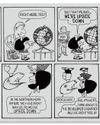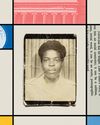Denemek ALTIN - Özgür
NEW CHAPTER
The New Yorker
|November 18, 2024
Is the twentieth-century novel a genre unto itself?

Genres are the Sirens of literary criticism. They seem friendly and alluring, but they are dangerously elusive shape-shifters. You really have to lash yourself to the mast.
Genres tend to be pictured as the bones of literary texts, the formal properties onto which the imagery and details of character, plot, and setting are grafted. These skeletons are transmissible across time. So “Oedipus Rex” (circa 430 B.C.E.), “Hamlet” (circa 1600), and “Death of a Salesman” (1949) are all called tragedies. But, apart from unhappy endings, those plays are more different than they are alike. It is hard to extract a robust definition of “tragedy” that works for all three. Similarly, we call the Odyssey an epic. But why isn’t it a novel? Because it’s written in verse? Then how about a prose translation: would that be a novel? It’s not obvious why it wouldn’t. The Odyssey is a story about a family separated by war. So is “War and Peace,” and we don’t categorize that as an epic.
There is also the problem of basing our generalizations about literary types on a highly selective group of texts. Of the hundreds of tragedies estimated to have been written in ancient Greece, we know of only thirty-two complete ones, attributed to just three playwrights. We don’t know all the forms that tragedy, as the Greeks understood it, might have taken.
In the case of a genre like the novel, too, we are operating with a ridiculously small sample size. As Franco Moretti pointed out, in an article published in 2000, when literature professors talk about “the nineteenth-century British novel” they are talking about roughly two hundred books. He estimated that this is 0.5 per cent of all the novels published in Great Britain in the nineteenth century.
Bu hikaye The New Yorker dergisinin November 18, 2024 baskısından alınmıştır.
Binlerce özenle seçilmiş premium hikayeye ve 9.000'den fazla dergi ve gazeteye erişmek için Magzter GOLD'a abone olun.
Zaten abone misiniz? Oturum aç
The New Yorker'den DAHA FAZLA HİKAYE

The New Yorker
THE MAGIC OF “MAFALDA”
How an Argentinean comic strip became an international phenomenon.
11 mins
July 07 - 14, 2025 (Double Issue)

The New Yorker
BY THE BOOK
What we learn from reading the fiction touted in our début issue.
13 mins
July 07 - 14, 2025 (Double Issue)

The New Yorker
THE STORY PART
Student days and a search for community.
19 mins
July 07 - 14, 2025 (Double Issue)

The New Yorker
THE SILENCE
A great silence opened up inside her. But that made it sound more dramatic than it was. It happened by degrees, creeping up slyly. And at times, in certain places and situations, it was expected and welcome—on a long walk, or when a person confessed something pitiful, or at a funeral or a party. In all those places, where once she'd had a lot to say—too much, honestly—now there was this silence and she became a far better listener. Not consciously, that was just one of the consequences. It wasn't a Zen silence or an enlightened silence or anything she'd worked to achieve. It was only a sort of blank. Once, on a mini-break, she'd spotted a sentence graffitied on a bridge in Paris: “The world is everything that is the case.” (It was written in English and stuck in her mind.) The silence felt like that: it spoke for itself. But it could also offend and disappoint others, the same way the world itself never seems enough for some people. It was no use on big family occasions, for example, or when one of her adult daughters called her name from another room, or if someone at work asked for her view on the news of the day. It could make other people feel awkward. But when she was alone with it, whenever it coincided with her own long-standing habit of looking upward into the branches of trees—then it didn't really bother her at all.
23 mins
July 07 - 14, 2025 (Double Issue)

The New Yorker
THE COMEDIAN
My father worked nights as the desk attendant at a cheap hotel downtown. It was a thankless job behind bulletproof glass, which was all he had to shield him from demented drunks and screeching prostitutes, from seven in the evening until four in the morning, the poor man.
24 mins
July 07 - 14, 2025 (Double Issue)

The New Yorker
IS IT THE PHONES?
The tantalizing power of the theory that screens are harming teens.
13 mins
July 07 - 14, 2025 (Double Issue)

The New Yorker
THE END OF THE ESSAY
What comes after A.I. has destroyed college writing?
25 mins
July 07 - 14, 2025 (Double Issue)

The New Yorker
EASY MUSIC
How Elmore Leonard perfected his style.
23 mins
July 07 - 14, 2025 (Double Issue)

The New Yorker
JUBILEE
A wooden ruler with the etched faces of Henry VIII's six wives running down the middle; ticket stubs from Hampton Court and the Chamber of Horrors, where we walked ahead of our mothers, hand in hand; a few wrappers of Dairy Milk.
34 mins
July 07 - 14, 2025 (Double Issue)

The New Yorker
PRIDE AND PROVENANCE
The Met's new Rockefeller Wing daxxles—and whispers, “Finders, keepers.”
6 mins
July 07 - 14, 2025 (Double Issue)
